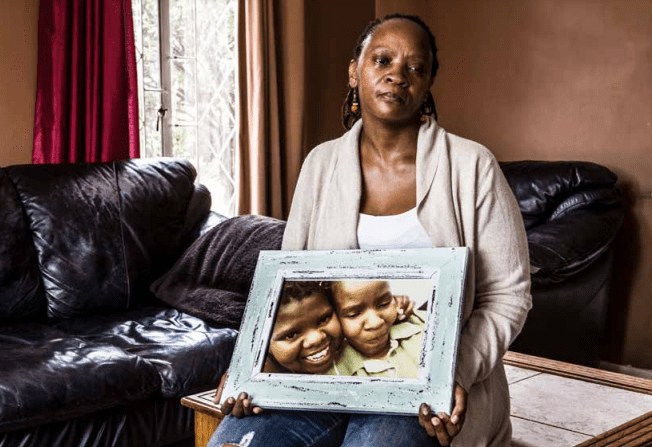Impact of reburial initiatives of war victims on national identity
Charles Mavhunga REBURIAL initiatives of war victims have had a profound impact on the country’s national identity and economic development. As the nation confronts its tumultuous past, the reburial initiatives have become a beacon of hope, symbolising a collective quest for healing, reconciliation and rebirth. Through honouring the lives lost and acknowledging atrocities committed, Zimbabwe […]


Charles Mavhunga
REBURIAL initiatives of war victims have had a profound impact on the country’s national identity and economic development.
As the nation confronts its tumultuous past, the reburial initiatives have become a beacon of hope, symbolising a collective quest for healing, reconciliation and rebirth.
Through honouring the lives lost and acknowledging atrocities committed, Zimbabwe is slowly rebuilding its national identity, fostering a sense of unity and shared history among its people.
In addition, these initiatives have also started to yield economic benefits, as the country’s rich history and cultural heritage become increasingly attractive to tourists, paving the way for sustainable economic growth and development.
Background
Zimbabwe has been grappling with the legacy of its bloody past, particularly the mass graves of war victims from the country’s independence struggle.
The Government of Zimbabwe has been making efforts to honour the deceased, including the exhumation and reburial of remains in designated cemeteries.
One such initiative is the great works of Comrade Anyway Chinyani’s non-profit organisation, the Fallen Heroes Trust of Zimbabwe, which has been instrumental in this process.
It has exhumed and reburied around 8 000 remains, providing closure for families and promoting national healing.
In addition, the Government has established the National Peace and Reconciliation Commission to address past injustices and promote national healing.
Benefits
The reburial of war victims in Zimbabwe is a pivotal aspect of image building, cultural values and identity building, serving as a testament to the nation’s respect for its ancestors and the deceased.
This reverence is deeply ingrained in Zimbabwe’s cultural fabric, where honouring the dead is a sacred tradition.
The reburial ceremonies and sites become an integral part of Zimbabwe’s cultural heritage, showcasing its rich history and traditions.
For instance, the reburial of liberation war heroes at the National Heroes Acre in Harare demonstrates the nation’s commitment to honouring its past and cultural heritage.
Beyond Zimbabwe’s borders, the significance of reburial initiatives can be seen in global examples such as the reburial of Native American remains in the United States, which acknowledges the historical injustices on indigenous peoples.
Similarly, the reburial of soldiers’ remains from World War I and II in Europe serves as a poignant reminder of the devastating consequences of war.
These international examples underscore the importance of reburial initiatives in promoting cultural revitalisation, healing and reconciliation.
In Zimbabwe, the reburial initiatives have contributed significantly to national healing and reconciliation, fostering a positive image of the nation.
The impact of reburial initiatives extends beyond cultural significance, as they also offer educational opportunities, community engagement and authentic cultural experiences.
The reburial sites and ceremonies serve as educational tools, raising awareness about Zimbabwe’s history and cultural values.
Local communities are actively involved in the reburial initiatives, promoting community-based tourism and supporting local economic development.
The authenticity of these experiences allows tourists to connect with Zimbabwe’s history and people, differentiating its tourism brand and highlighting its unique cultural heritage and history. As the world grapples with the legacy of conflict and injustice, Zimbabwe’s reburial initiatives stand as a powerful example of the importance of honouring the past and promoting cultural values and identity building.
Overall, the reburial initiative in Zimbabwe represents a poignant tribute to the nation’s ancestors and deceased, serving as a catalyst for promoting national identity, unity and healing. The profound reverence for honouring the dead is deeply embedded in Zimbabwe’s cultural fabric, and these initiatives stand as a testament to the nation’s unwavering respect for its rich cultural heritage.
The reburial ceremonies and sites are an integral component of Zimbabwe’s cultural landscape, showcasing its diverse history and traditions.
In addition, this initiative plays a vital role in fostering cultural revitalisation, healing and reconciliation not only within Zimbabwe but also at a global level.
Furthermore, the involvement of local communities in these initiatives promotes community-based tourism, supports local economic development and provides tourists with authentic cultural experiences.
Finally, the reburial initiatives in Zimbabwe serve as a powerful paradigm for the significance of honouring the past and promoting cultural values and identity building, and thus, this programme merits unequivocal support.
*Charles Mavhunga co-authored textbooks in Business Enterprising Skills and is currently studying for a PhD in Management at Bindura University of Science Education. He can be contacted at charles.mavhunga@gmail.com/Cell:0772989816
What's Your Reaction?



































